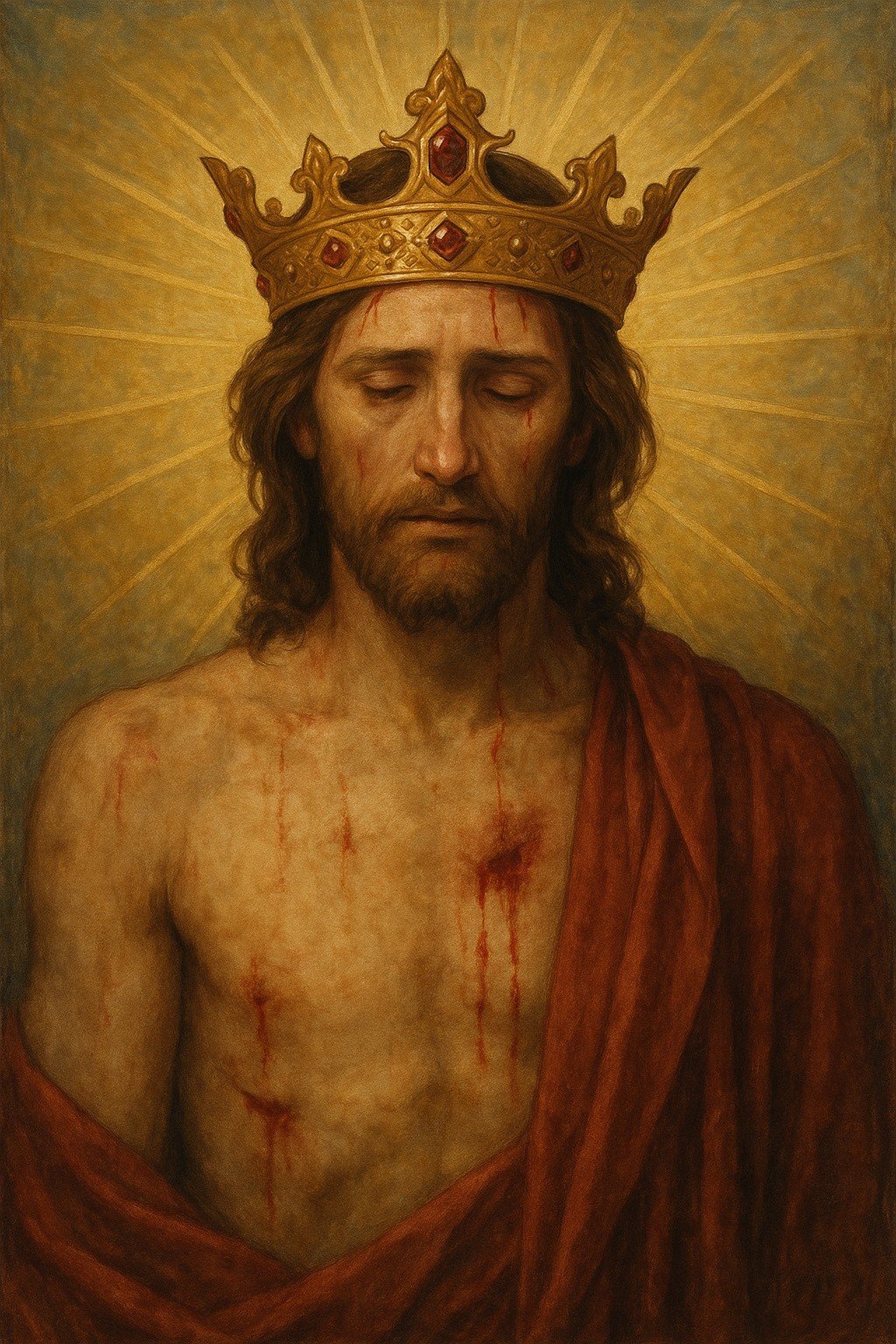But Why Suffering?
A reflection on Hebrews 2:9-10
by Ms. Annette Davila, O.P.
“We see Jesus crowned with glory and honor because he suffered death, that through God’s gracious will, He might taste death for the sake of all men. Indeed, it was fitting, that when bringing many sons to glory, God, for whom and through whom all things exist, should make their leader in the work of salvation perfect through suffering.”
But why suffering? Why was it fitting for God to make the founder of salvation “perfect through suffering” as our reading says? Why did God have to make Jesus “perfect” at all? He was already perfect! I have struggled with the reason for the suffering of Jesus for many years. If our redemption merely required sacrifice, why wouldn’t the sacrifice of Jesus putting aside His divinity to become human be enough? When I was asked to do a reflection on this passage, I was stumped until I realized that this was Divine Providence encouraging me to knock so the door could be opened, to seek so I could find, and seek I did.
The many reflections I found on this passage from Hebrews were not helpful in answering my question, “Why suffering?”, so I searched for reflections on suffering instead. That was the key that opened the door to Ron Rolheiser. Ron Rolheiser, a Catholic priest and renowned theologian, explains that “perfect” does not mean that Jesus was once imperfect. Rather, it means that He was made complete in his role as Savior through his suffering and obedience to the Father, even unto an agonizing death. Jesus knew that He must experience the full impact of the separation from the Father caused by sin, and the suffering it produces, in order to accomplish his mission as savior. He had to be so immersed in sin, that He actually became sin. As St. Paul says in his 2nd Letter to the Corinthians, “For our sake, He made Him to be sin who did not know sin”.
When Jesus shares his last Passover meal with his closest friends on Holy Thursday, He knows that His earthly mission is coming to a close, and that there is so much more still to be done. But that is going to be the work of the Holy Spirit at Pentecost. Jesus is left with one more thing to teach us, and that deals with suffering.
Jesus knows that suffering is not a punishment from the Father. It is merely the natural consequence of humanity’s actions. Our first parents lost the perfection we were created with when they “grasped at equality with God” and chose to disobey. Now, His Son must teach us one more thing, not using words, but through His actions.
Jesus knew that He was going to face a difficult battle. Even at His transfiguration, Jesus discussed with Moses and Elijah what He was going to endure. He had to subject Himself to all the power of the worst part of the human condition - hate, fear, jealousy, cruelty, pride. But Jesus understood His mission and was steadfast in His desire to cooperate with His Father’s plan for our salvation. He knew that God is love - overwhelming and boundless love. And so, He understood what He was actually going to accomplish through His suffering.
The Transfiguration - painting by Raphael, 1520
The Father didn’t need to have Jesus suffer horrific pain and humiliation in order to forgive us. In His infinite love, the Father had already done that. Jesus was doing far more than forgiving sins. Jesus took away sin, not by placating the anger of the Father, but by “absorbing and transforming sin”.* He was redeeming our fallen human nature and thereby securing our salvation.
In an effort to explain how this was done, Ron Rolheiser uses the analogy of a water filter. As polluted water flows through the filter, the filter holds the impurities inside itself and gives back only purified water. It transforms rather than transmits. Jesus takes in hatred, bitterness, jealousy, fear, cruelty, pride disobedience, and gives back love, blessing, humility, obedience, freedom, and forgiveness. Jesus takes in hate and gives back love.** He transforms fallen human nature and gives back everything that God is by nature, and thereby reconciles us with the Father. This act of sacrifice is the foundation of God’s grace allowing humanity to be reconciled to Him. The shedding of blood in that way really does wash away sin.
What are we to learn from this? Suffering and loss open the door to despair - a total loss of hope and trust in God. It presents the greatest test of our faith. When we come face to face with suffering and loss, we know we have a God who has suffered Himself, and Who suffers with us; who understands our lives because He has lived it. What an immense act of compassion!
But do we really believe in a loving God Who is always with us; Who is always ready, willing and able to help us; or, in our pain, do we lash out? Do we blame God, and refuse to believe?
People don’t look for suffering, but it comes to us anyway. That’s just a natural part of our fallen humanity. When it does come, we are to imitate Jesus. We are to absorb it and give it back to the Father “purified” out of love.
I think that my mother summed it up very well for me when I was a child. When I was faced with pain or suffering, she often said, “Offer it up!” Thanks to Ron Rolheiser, I have a deeper understanding of what my mother’s words mean.
Resources:
* “Taking Tension Out of the Community”, Ron Rolheiser, OMI; April 12, 2021
** “Darkness cannot drive out darkness; only light can do that. Hate cannot drive out hate; only love can do that.” Dr. Martin Luther King, Jr.

